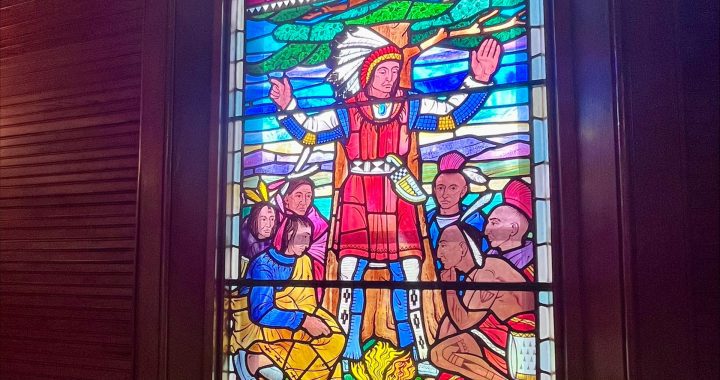Reporter Melissa Ridgen goes looking into how the upcoming legalization of marijuana in Canada may affect First Nations wanting to cash in on the lucrative crop.
But as she finds out, the answer is far from simple with some advocates and experts arguing against the introduction of the drug-legal or not.











When did this video air? It’s got inaccurate and out of date information.
Tyendinaga’s first shop was Legacy 420, which opened just over 3 years ago. There were no other shops in Tye until last spring. There are now far more than 16, closer to 40 or 50. There is no attempt to run them to any sort of standards and NIMCA is a joke.
This is a great propaganda piece advertising the services of the marijuana dispensaries featured. It almost comes across as paid content with how little the presenter goes into the negatives of the industry as compared with the positives. It also looks like the reporter only talked to chiefs and people in the industry. They are the ones with an agenda to push.
Come talk to actual community members in Tyendinaga about the impacts.
Talk to people about the speeding and traffic violations, about the stoned driver who recently ran a stop sign going 120 and almost got into an accident with a busload of school children. Talk to parents about the dispensary that went up right across from the bus stop where their elementary aged children wait every day. Talk to the homeowners who no longer have comfort and peace in their own homes because someone put up a dispensary next door. Talk to the family restaurant owners who were kicked out of the space they were leasing-to-own (for 5 or 6 years) with two weeks notice because somebody who already owned at least one dispensary got a million dollar backer to buy out the restaurant from under them and turn it into a dispensary. Talk to the people concerned about the environmental impacts of the fertilizers and pesticides that some growers use. Talk to the people who know which shops to avoid because they manufacture their extracts using propane and handle harder drugs in the same space where they process their pot. Talk to the parents of teenagers who know which shops they can buy at because they don’t ID. Talk to the people who have experienced adverse reactions and in some cases been admitted to the hospital after consuming homemade edibles sold on the reserve.
Talk to the community, the families, the youth, the Elders: the people who don’t stand to profit from this. That’s when you’ll have your balanced story.
When did this video air? It’s got inaccurate and out of date information.
Tyendinaga’s first shop was Legacy 420, which opened just over 3 years ago. There were no other shops in Tye until last spring. There are now far more than 16, closer to 40 or 50. There is no attempt to run them to any sort of standards and NIMCA is a joke.
This is a great propaganda piece advertising the services of the marijuana dispensaries featured. It almost comes across as paid content with how little the presenter goes into the negatives of the industry as compared with the positives. It also looks like the reporter only talked to chiefs and people in the industry. They are the ones with an agenda to push.
Come talk to actual community members in Tyendinaga about the impacts.
Talk to people about the speeding and traffic violations, about the stoned driver who recently ran a stop sign going 120 and almost got into an accident with a busload of school children. Talk to parents about the dispensary that went up right across from the bus stop where their elementary aged children wait every day. Talk to the homeowners who no longer have comfort and peace in their own homes because someone put up a dispensary next door. Talk to the family restaurant owners who were kicked out of the space they were leasing-to-own (for 5 or 6 years) with two weeks notice because somebody who already owned at least one dispensary got a million dollar backer to buy out the restaurant from under them and turn it into a dispensary. Talk to the people concerned about the environmental impacts of the fertilizers and pesticides that some growers use. Talk to the people who know which shops to avoid because they manufacture their extracts using propane and handle harder drugs in the same space where they process their pot. Talk to the parents of teenagers who know which shops they can buy at because they don’t ID. Talk to the people who have experienced adverse reactions and in some cases been admitted to the hospital after consuming homemade edibles sold on the reserve.
Talk to the community, the families, the youth, the Elders: the people who don’t stand to profit from this. That’s when you’ll have your balanced story.